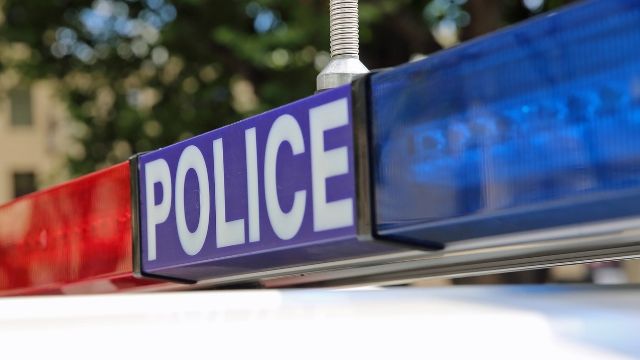You’re driving along Newcastle Link Road when you notice blue and red flashing lights behind you. A siren sounds.
You check your speedometer, you’re not speeding. You’re not driving erratically. You’re confused, what’s this all about?
Being pulled over by the police can be a very daunting experience, which is why it is vital to be aware of your rights and responsibilities when pulled over by police both marked and unmarked.
When can police pull you over?
You can be pulled over if the police reasonably suspect that you are committing a criminal offence if they are going to perform a roadside random breath test, or if you have breached a traffic offence.
A police officer also has the power to give reasonable directions for the safe and efficient regulation of traffic.
Police have very broad powers when it comes to conducting roadside stops. These powers are outlined in the Law Enforcement (Powers and Responsibilities) Act (NSW) (LEPRA).
Failing or refusing to pull over when directed constitutes an offence under section 39 of LEPRA.
Do you have to pull over for an unmarked police car?
You should pull over when directed if an unmarked police car is displaying flashing lights.
If you have been pulled over by an unmarked police car and you are unsure whether the person is a genuine police officer you should remain in your car with your car doors locked.
Do police officers have to identify themselves?
You are within your rights to stay within your locked car until you can satisfy yourself about the proper identification of the police officer.
You have the right to ask the driver to show you their identification. You can then call 000 to verify the officer’s identity.
Do I have to show ID & identify myself to the police?
Drivers are obligated to identify themselves if requested to do so by a police officer.
If a police officer asks to identify yourself, you should inform the police officer of your name and address.
You are also required to present your licence to the police so they can verify the details you have provided.
Do I have to answer any questions asked by the police officer?
If you’ve ever been pulled over by police, you’ll probably be familiar with the nature of the questions they tend to ask drivers.
Where are you going tonight? They might ask. Have you had anything to drink?
Contrary to what you might think, you are not under any obligation to answer questions put to you by police (apart from identifying yourself).
It is always best to remain polite and cooperative. If there is no harm in answering a few basic questions, then it is usually best to do so.
However, it is your right to decline to answer any questions, especially if the questions turn ominous.
For example, a typical red flag is if an officer asks have you got anything in the car I should know about?
You should always contact a lawyer if you are being questioned by police, and contact a criminal defence lawyer immediately if you think the actions from the police deserve going through the legal process of a court hearing.
Can police search my car without consent?
Generally, police are required to obtain a warrant before they can search a vehicle.
However, there is an exception to this rule. The exception is if the police suspect on reasonable grounds that you are in possession of any of the following:
- A prohibited plant or a prohibited drug
- Anything stolen or otherwise unlawfully obtained
- Anything used or intended to be used in connection with the commission of a relevant offence
- A dangerous article that has been used in (or in connection with) the commission of a relevant offence
If there are reasonable grounds for the police to suspect you are in possession of any of the above, they have the power to stop and search your vehicle.
If police demand to search your vehicle it is best to comply, however, you should never tell police that you are consenting to the search.

Key Takeaways
- Police Stops: Police can pull you over for suspected criminal offences, to perform random breath tests, or for traffic offences.
- Unmarked Police Cars: If pulled over by an unmarked car, verify the officer's identity while staying in your locked car.
- Identification: You must identify yourself to police when asked, including presenting your driver's license.
- Answering Questions: Apart from providing your identification, you're not obligated to answer further police questions.
- Vehicle Searches: Police usually need a warrant to search your vehicle unless they have reasonable suspicion of specific illegal items.
- Reasonable Suspicion: This must be based on factual circumstances, not just speculation, for a legal vehicle search.
What is reasonable suspicion?
The leading NSW authority on reasonable suspicion is R v Rondo.
In this case, the Court of Criminal Appeal ruled that the search of a vehicle (during which cannabis was found) was illegal because the officers involved didn’t possess a ‘reasonable suspicion’ at the time the stop and search was conducted.
The evidence gained from the illegal search was subsequently excluded as it was ruled to have been obtained illegally.
According to R v Rondo, a reasonable suspicion involves more than a possibility, but less than a reasonable belief.
The suspicion must have a factual basis, it cannot be based on hearsay or speculation. The belief must be formulated at the time of stopping and searching the person, it cannot be formed during the search or after the search.
If the police did not have reasonable suspicion at the time they searched your vehicle, then they have acted illegally. If your charge has been based on an illegal search, a lawyer may be able to get your charges dropped.
Hamilton Janke Lawyers has extensive experience representing clients in traffic matters. If you need advice to seek legal advice or representation for a traffic law matter, contact Hamilton Janke Lawyers 24 hours a day, 7 days a week on 4038 1666.
Written By

James Janke
James Janke is founding partner at Hamilton Janke Lawyers, and has more then decade of experience as a Criminal Defence Lawyer. Admitted to both the Supreme Court of New South Wales and High Court of Australia




